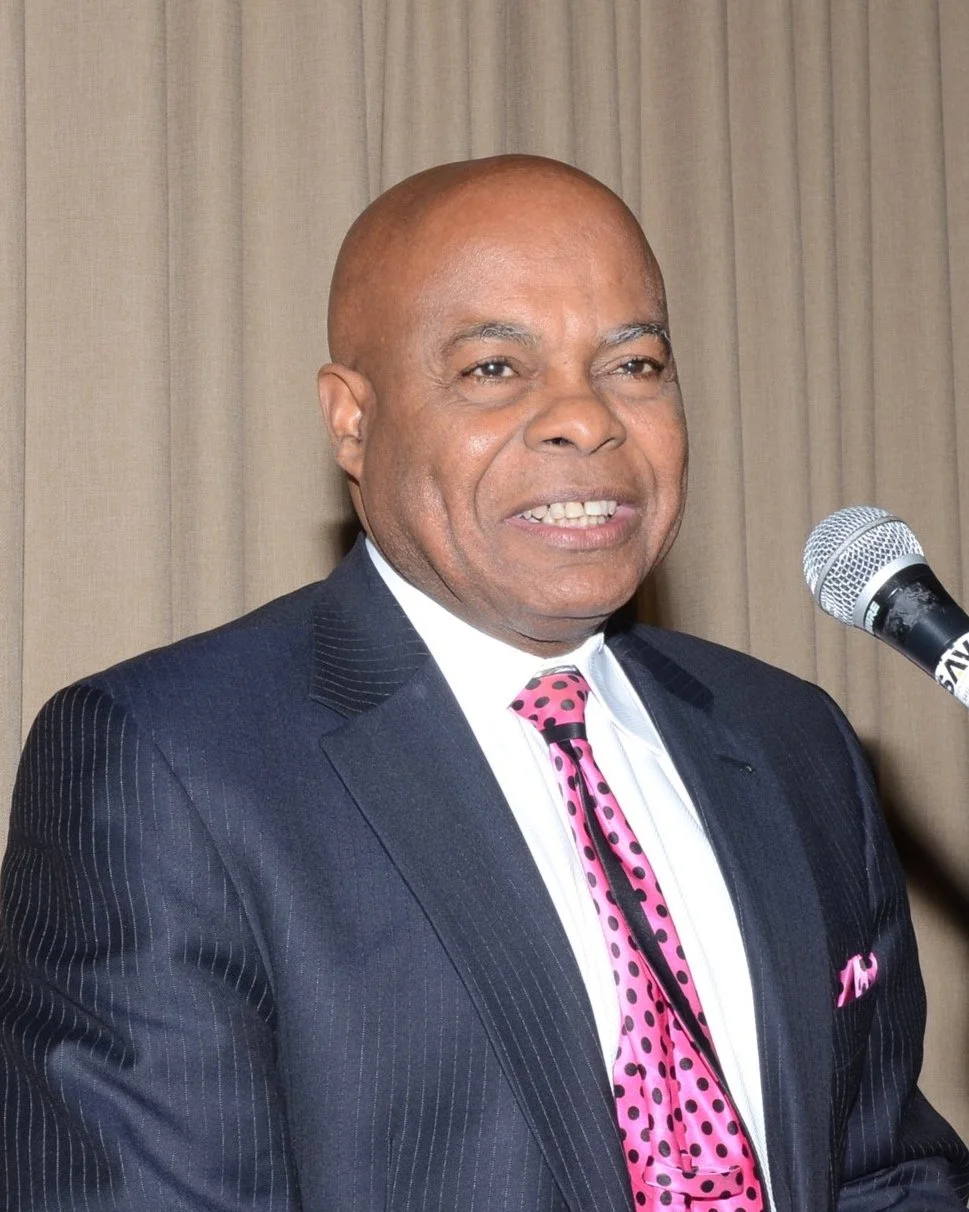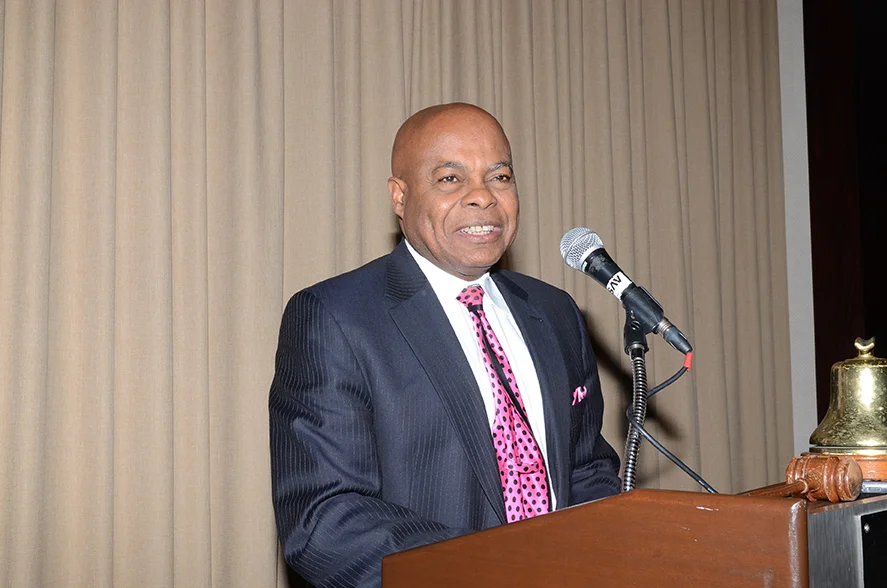Selwyn Romilly was trailblazer and legal giant
September 29, 2023
Constantly reminded by their school principal dad they could not be Black and stupid, Selwyn and Valmond Romilly took heed and became judges in Canada.
Selwyn, who was the University of British Columbia (UBC) Peter Allard School of Law first Black graduate and the western province’s first Black provincial and Supreme Court judge, passed away on September 22 at age 83.
Ngai Pindell met Romilly two years ago shortly after arriving on campus as Canada’s third Black law school Dean after Juanita Westmoreland-Traore at the University of Windsor and Donna Young at Toronto Metropolitan University.
“He attended law school during the turbulent 1960s when society – and certainly law schools – were incredibly hostile environments for Black youth,” noted the former Society of American Law Teachers Co-President. “These challenging beginnings to his career make his subsequent achievements and contributions to the legal community all the more impressive. There is no lawyer of colour in British Columbia and no judge who does not know, admire and highly respect the work and legacy of the Honourable Selwyn Romilly.”
In 2021, Romilly joined Justice David St. Pierre, father and son alumni Irwin and Matthew Nathanson, and Irwin’s wife, Joanie McEwen, in establishing Allard Law first student award dedicated to supporting incoming Black Canadian law students.
The $225,000 fund, that includes a UBC contribution, is supporting 15 incoming law students with their tuition and fees over five years.
“I will always be grateful to Selwyn for his mentorship of students at Allard Law,” said Black Law Students’ Association Co-President Tinashe Muzah. “Not only did he have an immeasurable impact on the greater legal community, but he profoundly supported the Black students at Allard. Selwyn leaves behind a towering legacy embodied by his incomparable achievements and the people, such as ourselves, whom he mentored, supported and inspired.”
Ontario’s Chief Justice Michael Tulloch said Romilly was a role model, judicial mentor and trailblazer who helped pave the way for him and many other Black lawyers to attain judicial offices.
“I first learnt of him when I was a law student at Osgoode Hall in the late 1980s,” said the President of the Ontario Court of Appeal. “He was one of the bright lights of the judiciary in B.C and, in one of my criminal procedure classes, we would read a number of his cases to inform on various principles of criminal procedure, criminal law and Charter interpretation. While reading Selwyn’s cases, I did not know he was a Black judge as there were not many judges of African descent in Canada at the time. Of course, I was very pleasantly surprised when I learned of his ethnicity. I then started to take more careful note and was inspired. I thought one day I would like to be like Selwyn.”
Tulloch met Romilly for the first time at a National Bar Association conference in the United States.
“I was a young up-and-coming lawyer and he was an esteemed judge of the Supreme Court, but I remember very distinctly how gracious, brilliant and down-to-earth he was,” Tulloch added. “From then on, he treated me like a younger brother and mentored me from across the country. He was an icon who contributed greatly to the administration of justice in Canada and whose judgments helped shape Canadian jurisprudence as we know it. His life and his work will be studied by generations to come.”
Last summer, Tulloch wrote a letter of support, recommending Romilly for a UBC honorary doctorate.
“Beyond his legal acumen, Justice Romilly exemplified the highest standards of professionalism, integrity and impartiality,” he said. “His dedication to public service and the pursuit of justice earned him the respect and admiration of his peers, legal professionals and the broader community. His tireless efforts to bridge gaps and foster understanding among diverse communities fostered a stronger and more equitable legal environment.”
Former Canadian Association of Black Lawyers (CABL) President Frank Walwyn said Romilly was a legal giant and trailblazer.
“He was principled and stern when he saw injustice and he always confronted it,” said the WeirFoulds LLP Partner. “But we in the Black legal community also knew him as someone who gave endlessly and ungrudgingly of his time and wisdom to mentor, guide, educate and instruct us on respective career paths.
“There was never a time when he did not respond to the call to speak at events, lead panels on new developments in the law or simply give life lessons to those coming up in the profession. His suggestions were often delivered with a subtle humour that was a hallmark of his. In all of his contributions, he remained humble and self-effacing. He was truly a gentle soul – in the language of today, a true human. His passing is a shock to all of us and he will not only be remembered always, but missed terribly.”
Donna Walwyn was the CABL President when Romilly retired from the B.C Supreme Court eight years ago.
“There is no doubt that Justice Romilly will be remembered as a trailblazer and legal giant, but those descriptions do not do justice to the full measure of the man,” said the Fairway Group Managing Director. “His contributions to the legal profession weren't restricted to the four corners of a judicial decision. He encouraged and shored up so many Black lawyers at all stages of their career.
“I still recall fondly Justice Romilly calling me out of the blue to encourage me to consider a particular career path. He opened the discussion with a strong assurance of his confidence in my ability and immediately followed with an assurance that he would always be there as a resource to support me and ensure that I would not only succeed, but excel. He ended with a joke that triggered a full belly laugh. That interaction was quintessential ‘Selwyn’. He extended encouragement, kindness, support and assistance selflessly and with a wit and joie de vivre that was unmatched. His light will be missed.”
Graduating from Queen’s Royal College in Trinidad & Tobago, Romilly came to Canada on a student visa that was renewed annually.
Selwyn Romilly was a product of Queen’s Royal College (Photo by Ron Fanfair)
Until his younger brother joined him two years later in 1965, the fourth Black to pursue law at UBC was the only student of colour in the university’s law program.
There was extra pressure on Romilly to succeed as three Trinidadian students – the first set of Blacks at Allard Law -- failed to graduate.
“My days in law school were hellish and the most stressful in my life,” he once said. “The pressure on me to succeed was intense. I not only had to do well, but I felt I had to do better. Were it not for a few of my close friends, I would not have made it through law school.”
Unable to secure an apprenticeship in Vancouver after graduating in 1966, Romilly – with the help of a classmate whose wealthy parents convinced their lawyer to offer him an opportunity – articled in Kamloops.
Offered a position at the firm for ‘starvation wages’, he left and was on his way to Prince Rupert to practice when he stopped in Smithers (the small town is about 800 miles from Vancouver) and met their only lawyer operating within a 200-mile radius who said he didn’t have a vacation in 13 years.
Made an offer he could not refuse, Romilly worked for the lawyer for two years before starting his practice.
Following the introduction of a new provincial court act in B.C in the early 1970s that led to the phasing out of lay judges, the brightest and best legal minds were sought to sit on the Bench.
After a third invitation, Romilly – with the support of his father who advised him to accept the offer – made history at age 34 as B.C’s first Black provincial court judge.
“I didn’t get that position because I was one of the brightest or the best,” he pointed out a few years ago. “I got it because I was a hard worker and I was in the north where there were very few lawyers. In other words, it was mainly through luck that I got that position. I just happened to be in the right place at the right time.”
Selwyn Romilly (r) & Robert Fung were the inaugural recipients of the Trinidad & Tobago Consul General Diaspora Awards in September 2007 (Photo by Ron Fanfair)
Romilly was a significant contributor to the development of the law in B.C. Several of his judgments have been summarized in the ‘Weekly Criminal Bulletin’, the ‘BC Digest of Criminal & Sentence Cases’ and the ‘Charter of Rights Digest’.
He decided over 720 cases, nearly 450 reported at the Supreme Court level.
Romilly sat on cases of local and national interest and importance, including the second trial of Kelly Ellard for the murder of 14-year-old Reena Virk that had previously ended in a mistrial.
In the ‘Festing’ v. Canada’ (Attorney General), he ruled on the constitutionality of the provisions of the Criminal Code setting out the procedure for determining a claim of solicitor-client privilege where documents are seized from a law office under a warrant.
The Supreme Court of Canada later decided the same issue in a case, ‘Lavallee, Rackel & Heintz v. Canada’ (Attorney General) and adopted some of Romilly’s reasoning.
Romilly also presided over the jury trial of several Hells Angels members and later sentenced them. Significantly, the jury’s verdict and his factual findings on sentence became part of the background facts in the Supreme Court of Canada’s decision on issue estoppel in ‘R. v. Punko’.
In 1991, B.C lawyers voted him one of the four best provincial court judges.
At the Supreme Court level, his decisions included the case of ‘Stein v. Stein’ that dealt with whether the British Columbia Family Relations Act precluded dividing contingent family liabilities between spouses where the liabilities could not be valued at the time of trial. His decision on this issue was upheld by the Supreme Court.
Whenever given an opportunity to address Black law students or lawyers, Romilly reminded them they are standing on the shoulders of Delos Davis and other Black legal trailblazers who faced enormous challenges.
For 11 years, Davis was forced to study and practice law at the legal clerk level because no lawyer provided him with an articling opportunity.
Frustrated, he applied to the Ontario legislature in 1884 to pass a Private Members’ Bill that would authorize him to practice in the province if he could pass the Bar examination.
The appeal was granted and he finished first in his class of 13.
Davis was admitted to the Bar in 1886, becoming the second Black after Jamaican-born Robert Sutherland to practice in Canada.
In his keynote address at the CABL’s 18th annual awards gala in Toronto in November 2014, Romilly said the struggle and eventual triumph of Davis epitomizes the event’s theme, ‘Still I Rise: Continuing Our Momentum Beyond the Barriers’.
“To the young Black lawyers and law students, I say to you that Delos Davis’ journey also demonstrates that persistence, determination and hard work are the keys to overcoming barriers in your path,” he pointed out. “It is my firm belief that only by understanding how far we have come that you will be able to be better prepared to prepare for the future and to continue our momentum beyond the barriers of yesteryear.”
Koskie Minsky Partner Arleen Huggins met Romilly early in her legal career through her involvement with the CABL.
“He was one of the ‘elders’ who provided much needed guidance and support to younger Black lawyers such as myself, not just in legal jurisprudence and rules of procedure, but in navigating a landscape which was so foreign to many Black lawyers,” said the Law Society Medal winner and head of her firm’s Employment Law Group. “I shall always remember Justice Romilly as very intelligent and knowledgeable, but also wonderfully giving with his time and never losing his Caribbean warm-heartedness.”
Though legally trained and sworn to uphold the rule of law, Romilly and his brother were subjected to the injustice of a criminal justice system that disproportionately affects Black people.
Once arrested for ‘Running While Black’, Selwyn was detained and handcuffed two years ago at age 81 for ‘Walking While Black’ by officers looking for another Black man half his age.
Vancouver’s police chief subsequently apologized to the retired judge.
In 1965, his brother won a judgment against three Vancouver police officers who falsely imprisoned him while searching for a Black suspect who did not look like him.
Romilly is survived by younger brothers Val and Mervyn, his wife of 56 years, Lorna, who he met at UBC, and their children Charis Romilly Turner and Jason Romilly.








